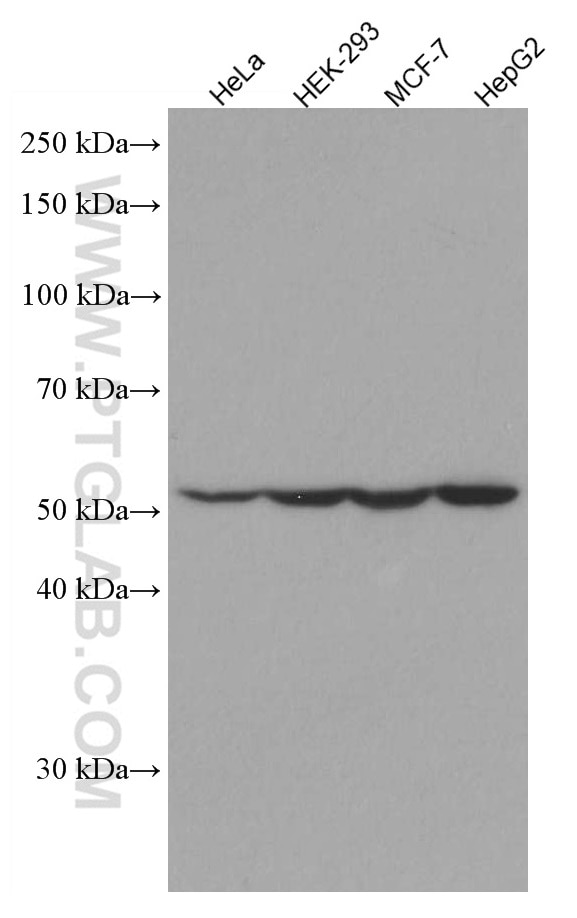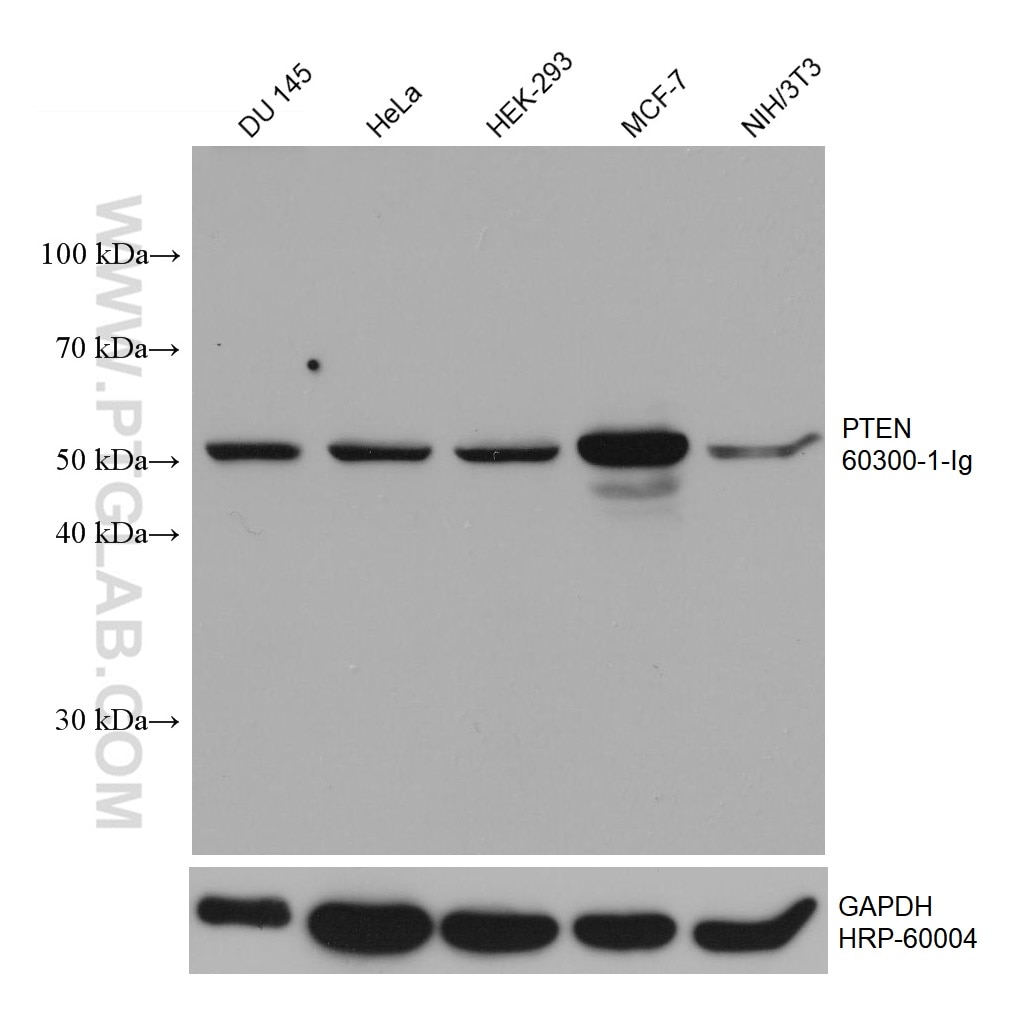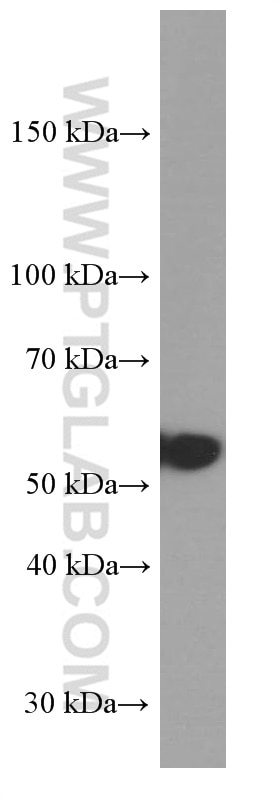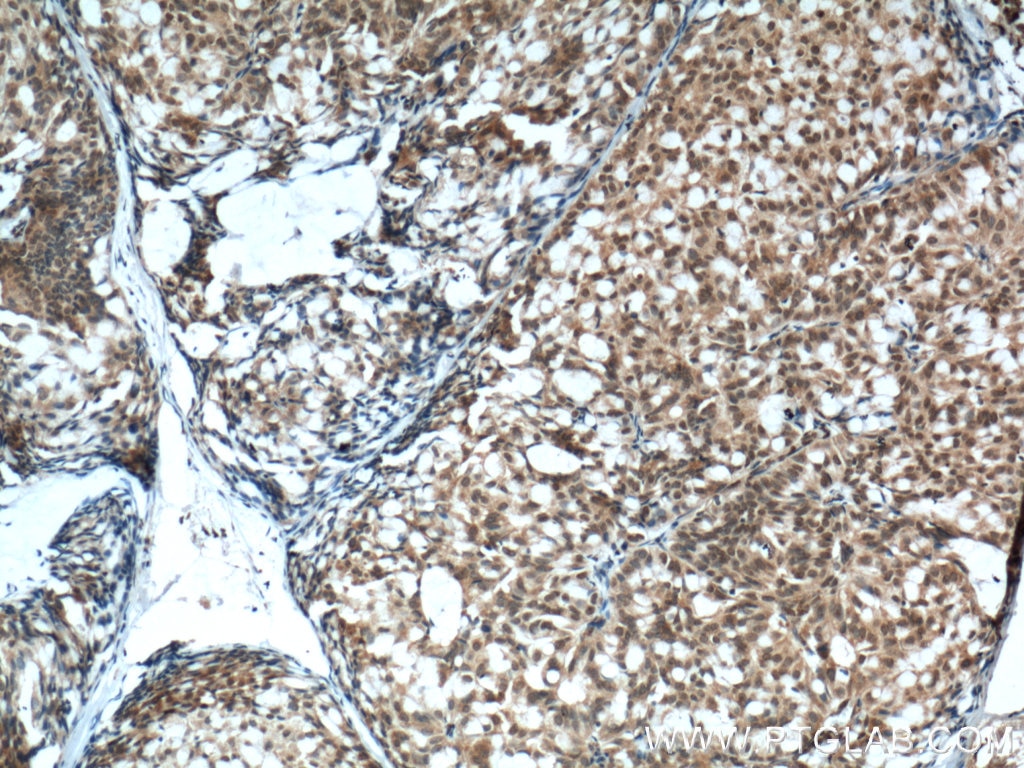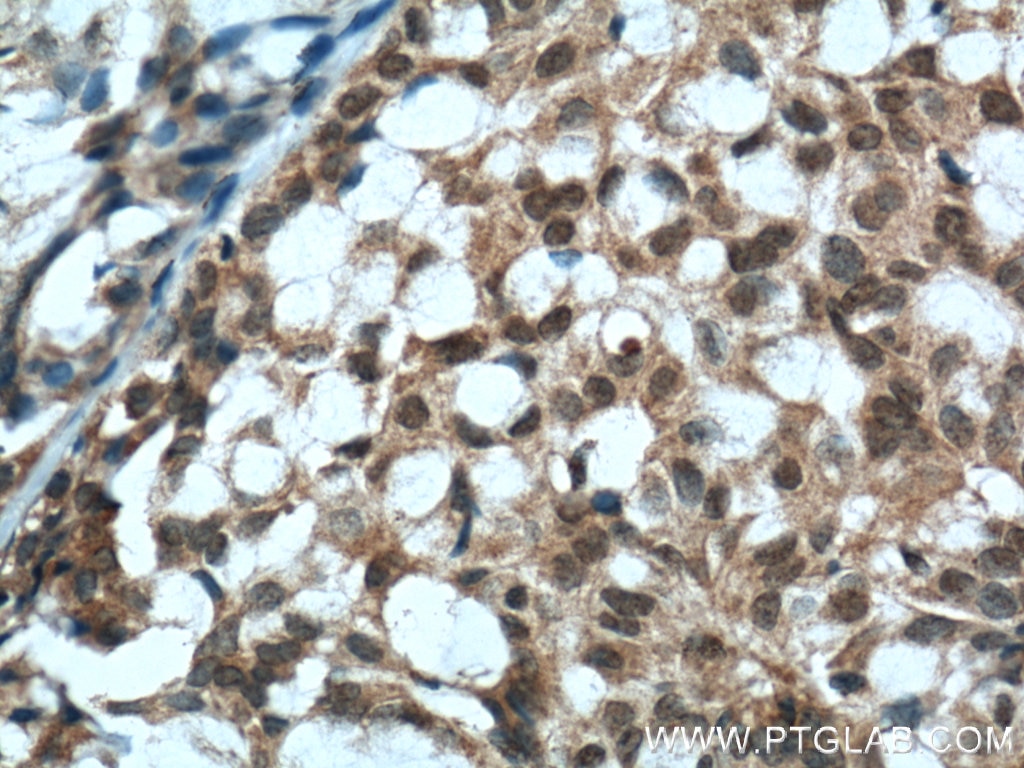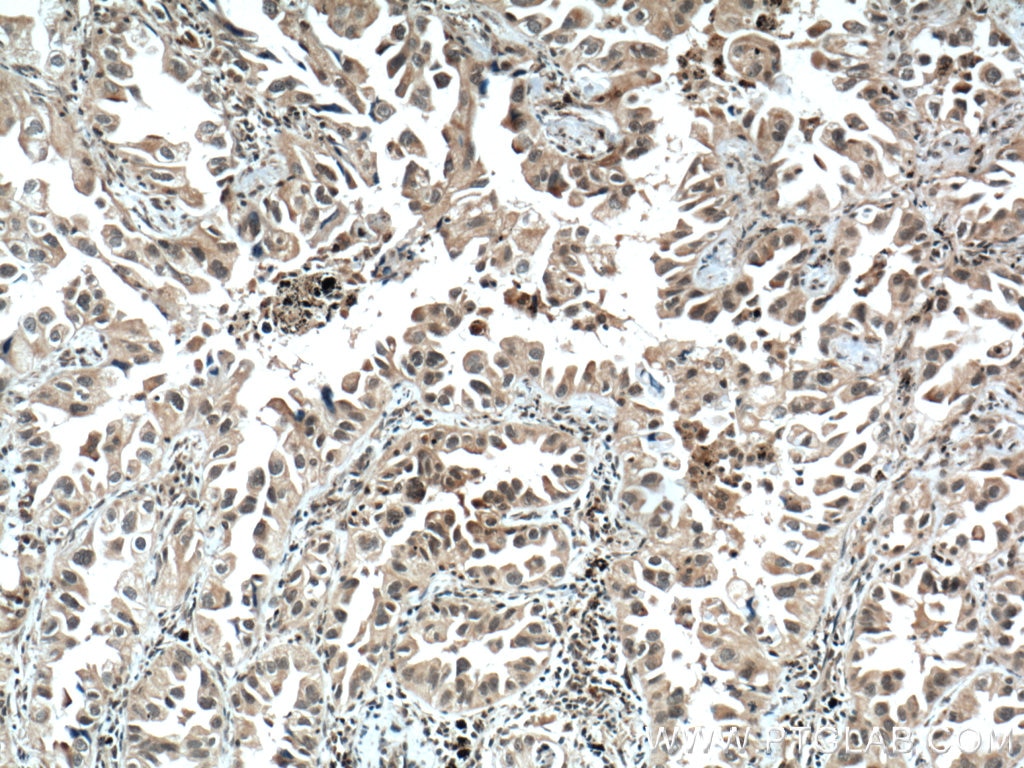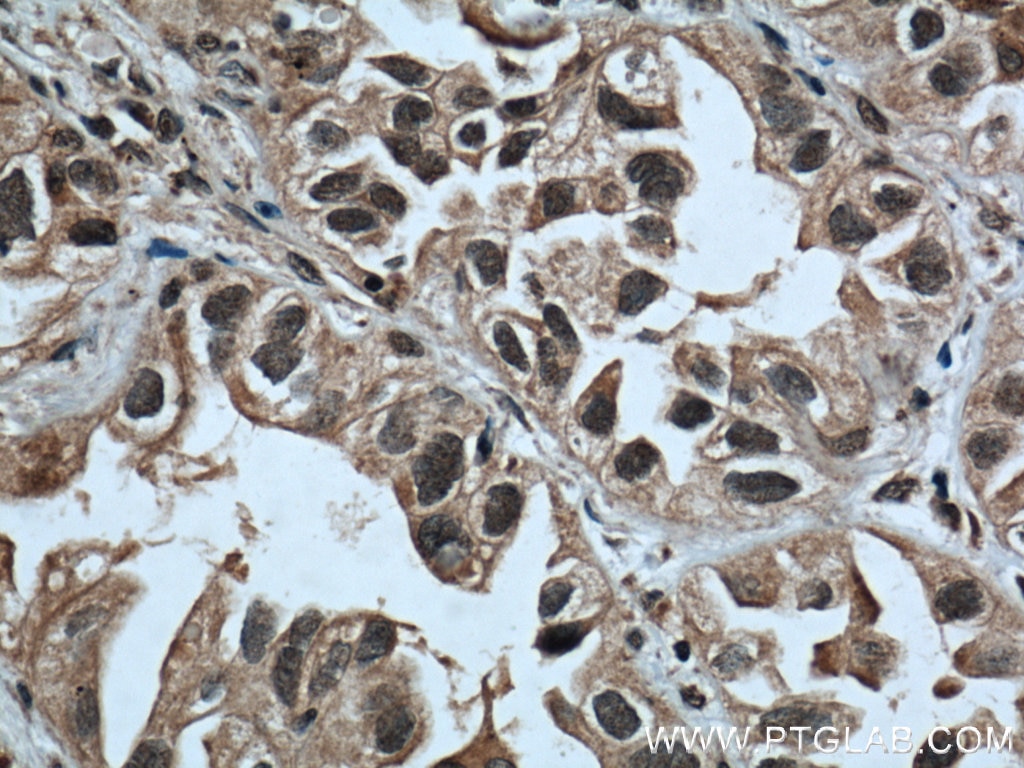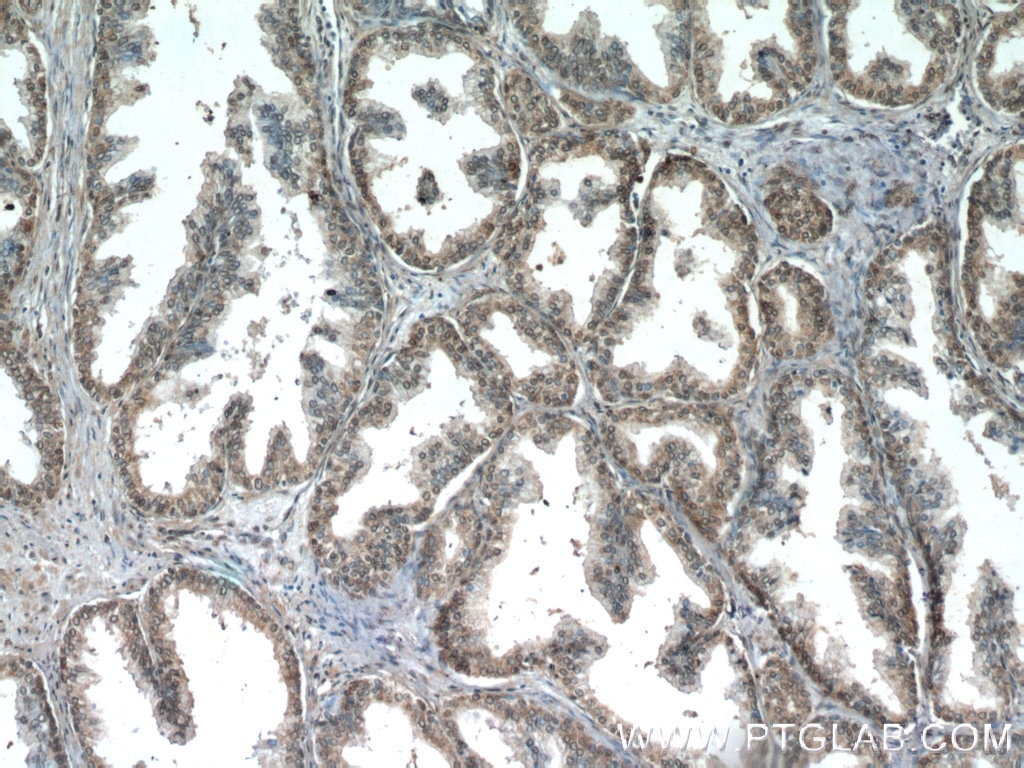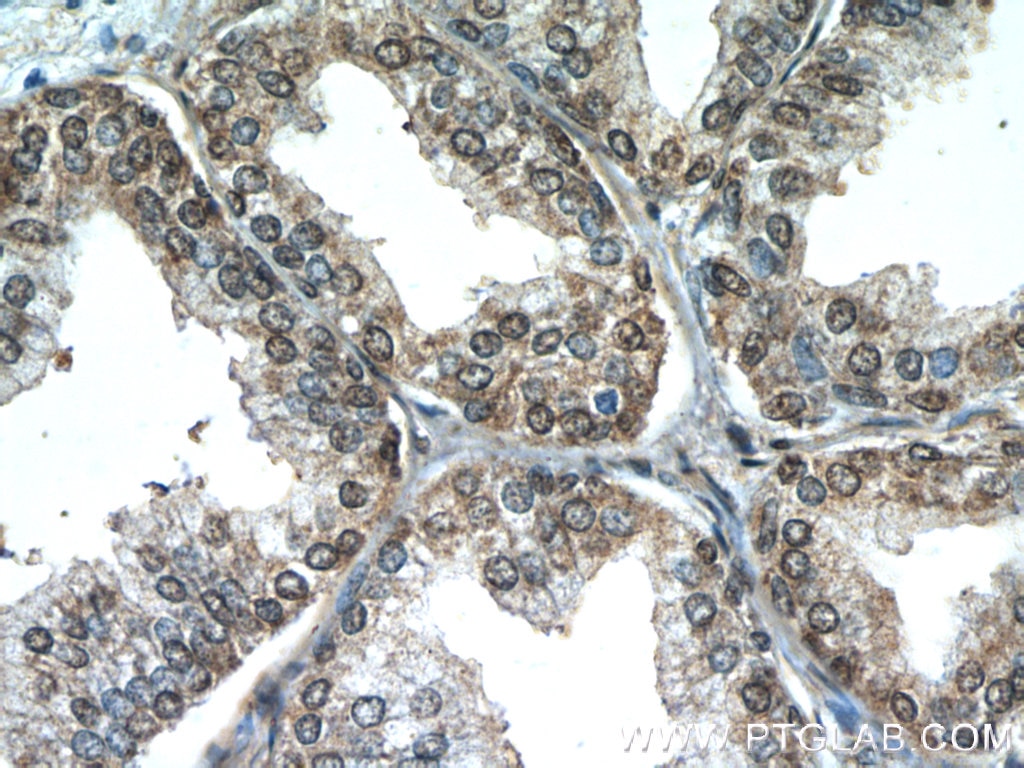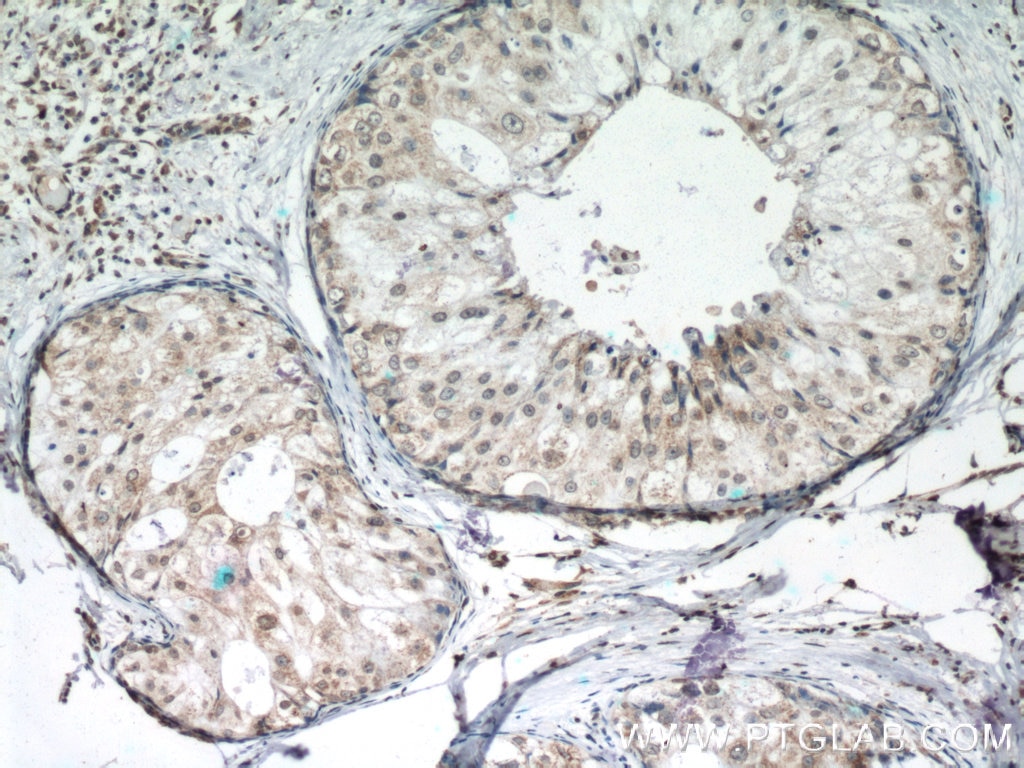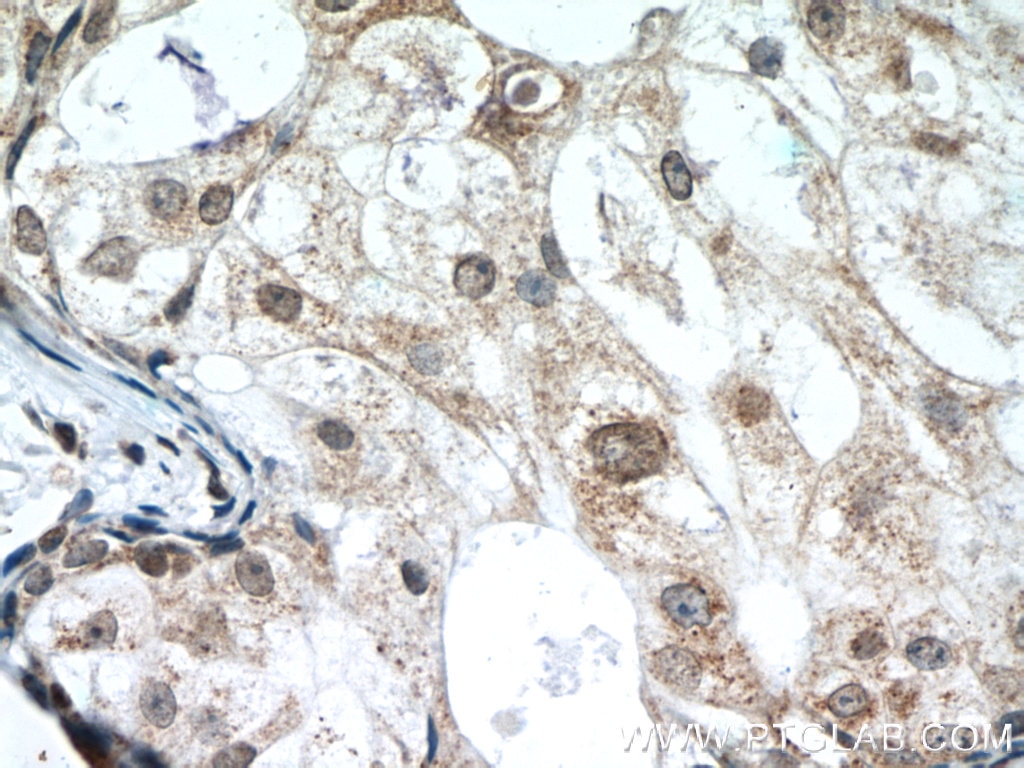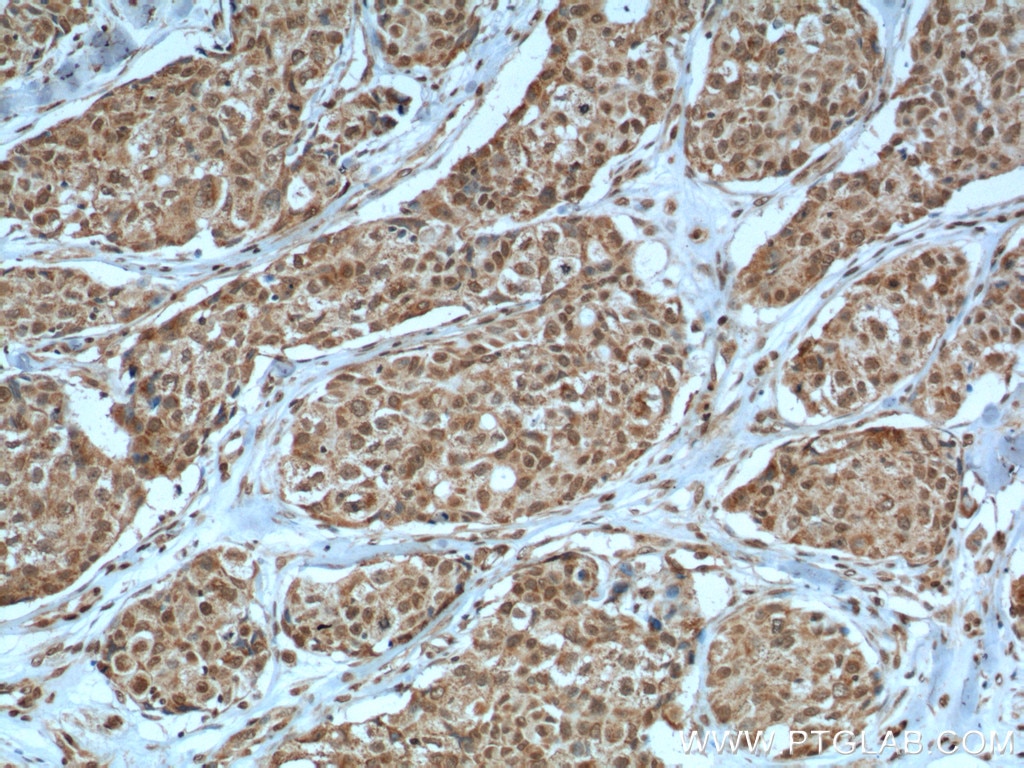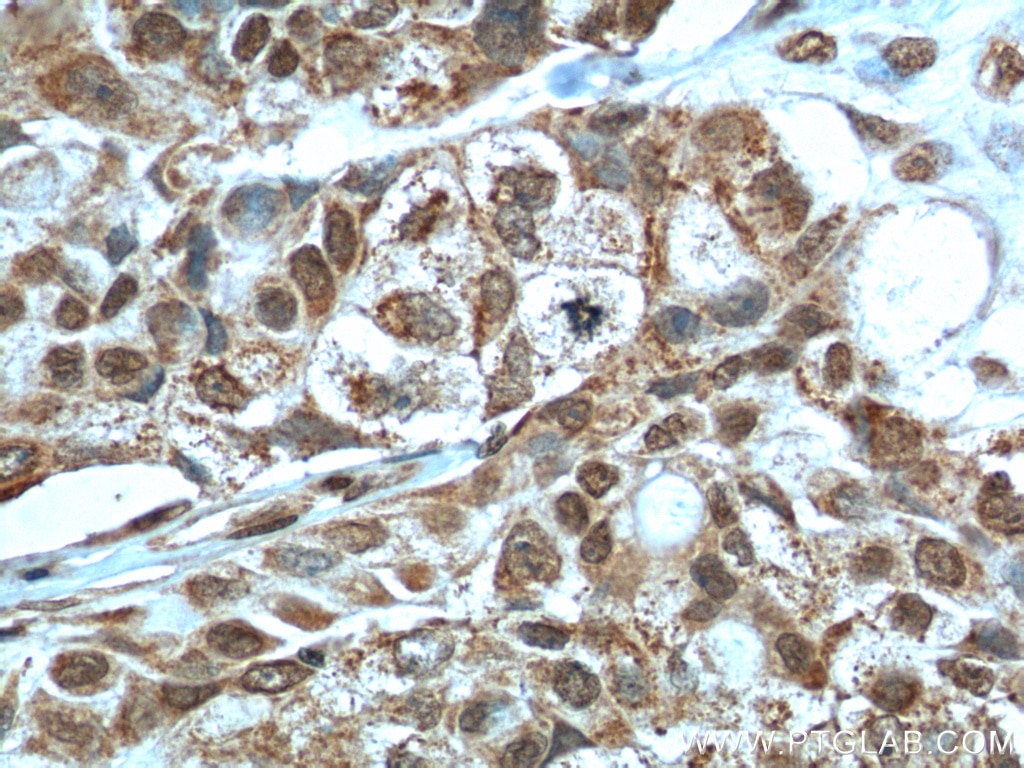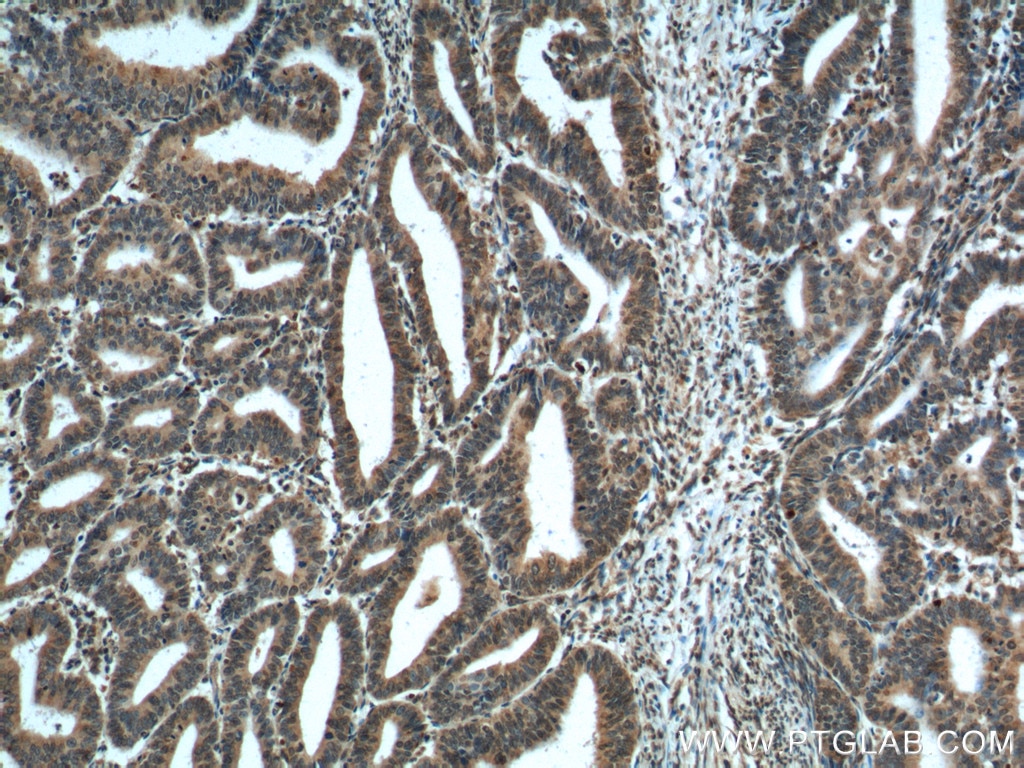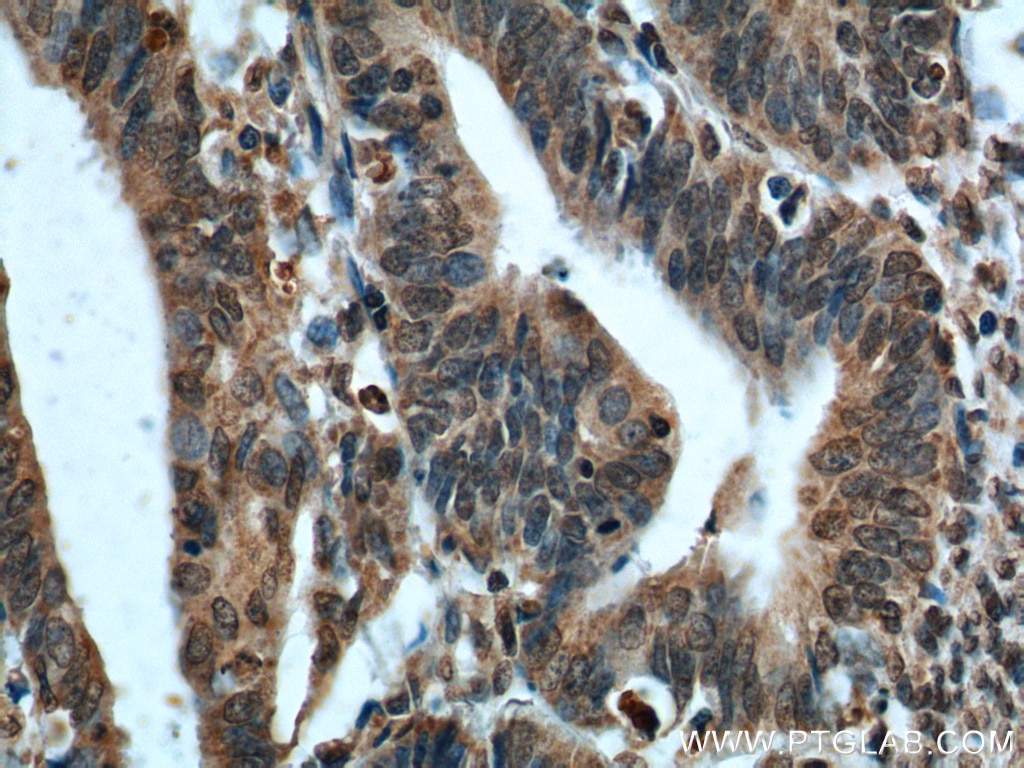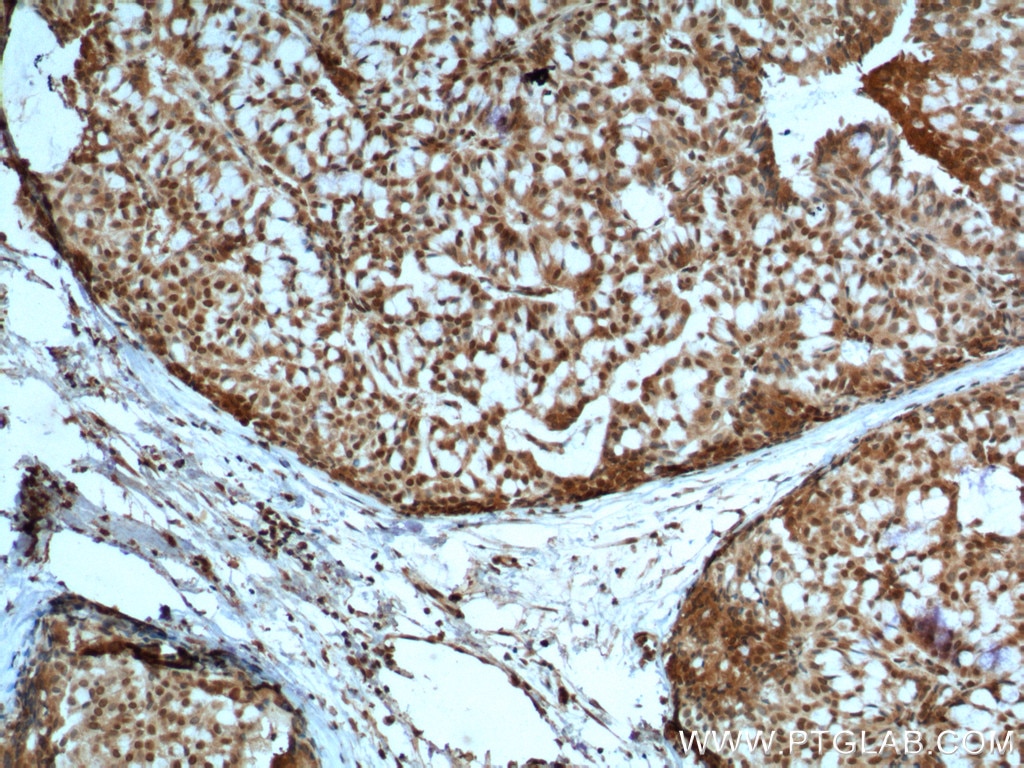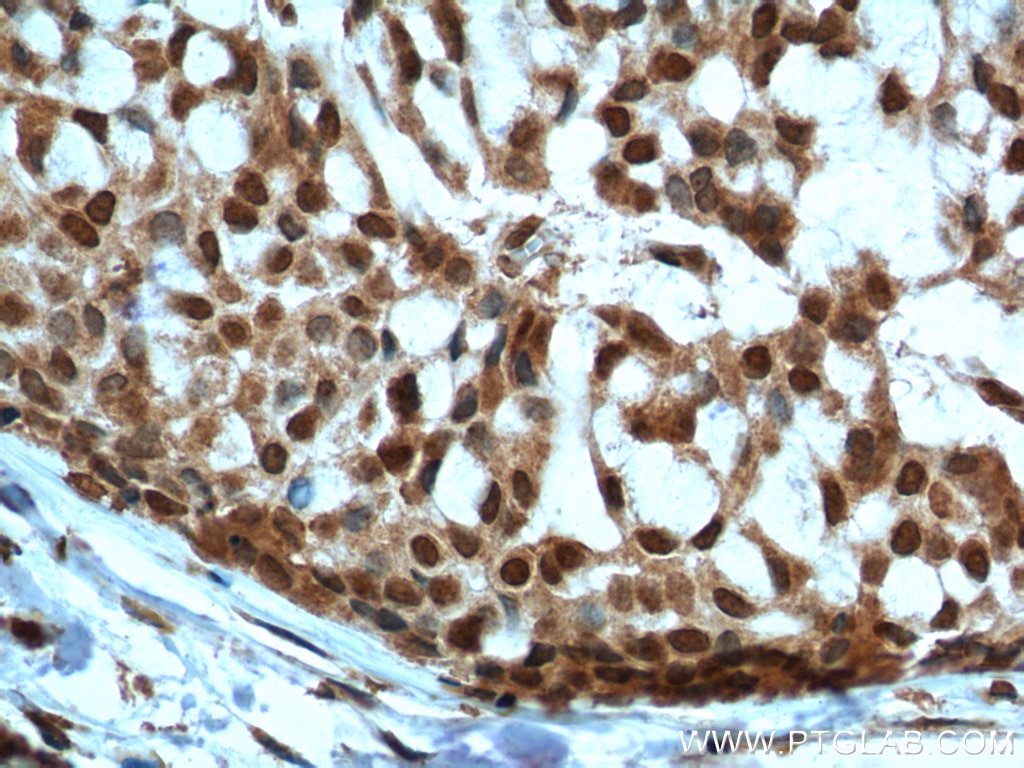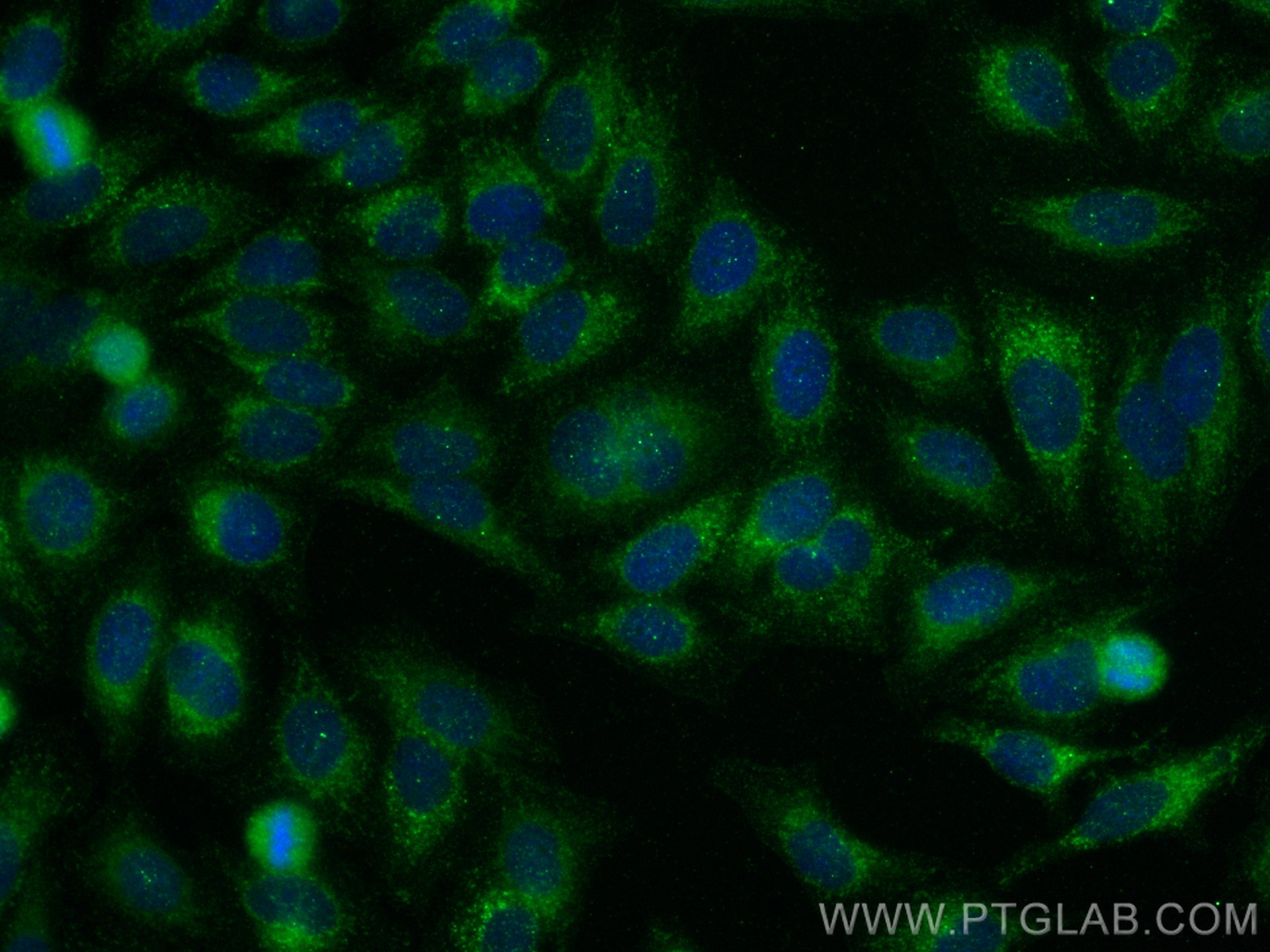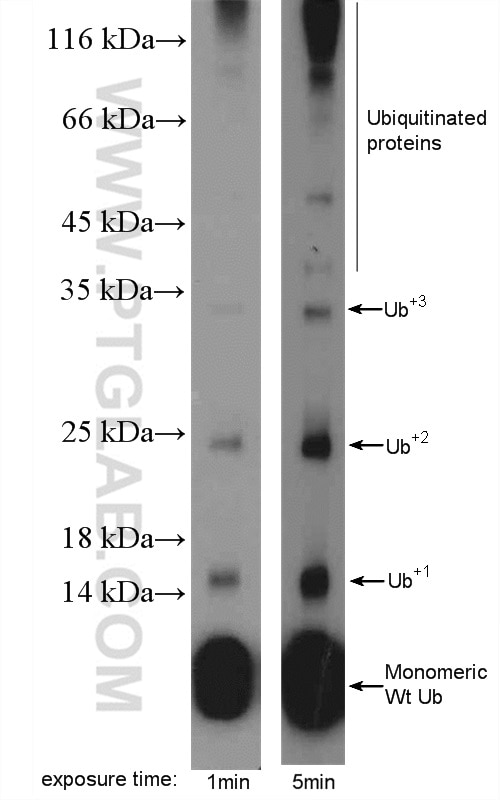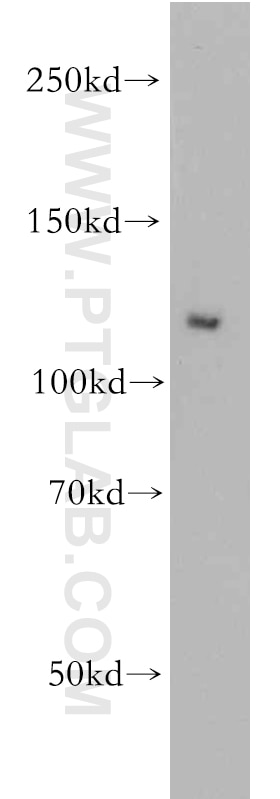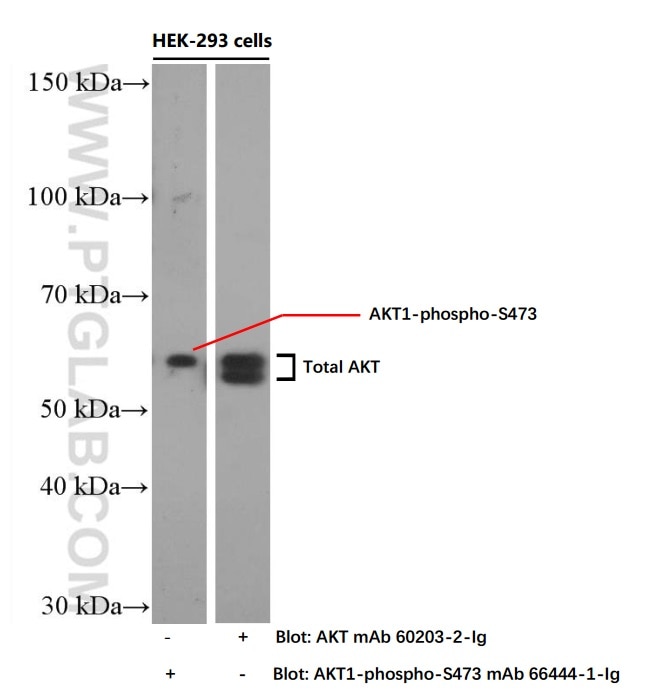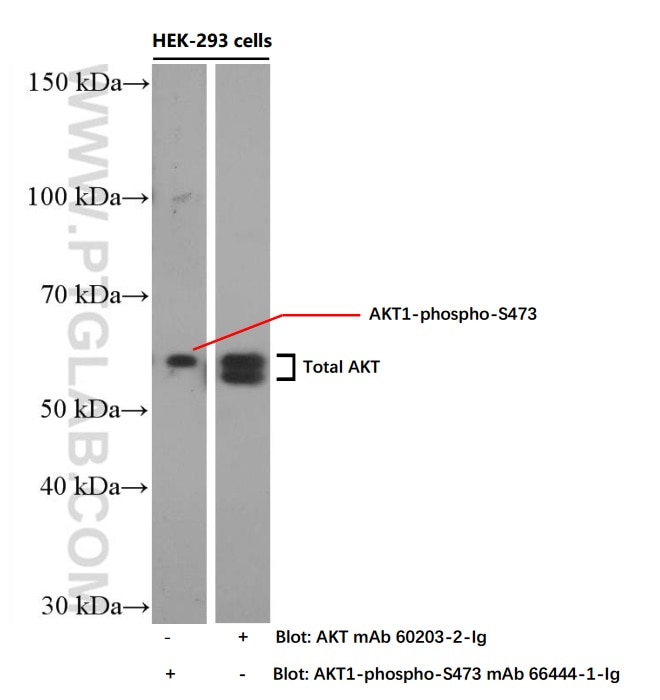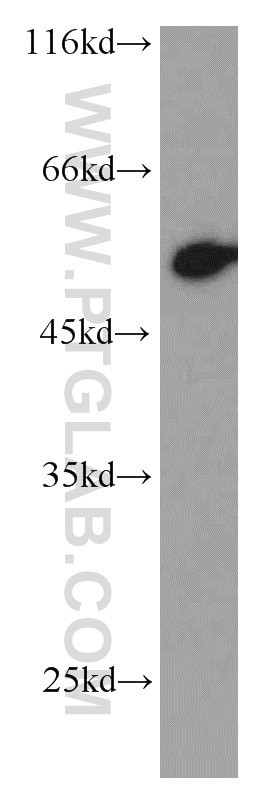- Featured Product
- KD/KO Validated
PTEN Monoklonaler Antikörper
PTEN Monoklonal Antikörper für IF, IHC, WB, ELISA
Wirt / Isotyp
Maus / IgG2a
Getestete Reaktivität
human, Maus
Anwendung
WB, IHC, IF, ELISA
Konjugation
Unkonjugiert
CloneNo.
5C10B6
Kat-Nr. : 60300-1-Ig
Synonyme
Galerie der Validierungsdaten
Geprüfte Anwendungen
| Erfolgreiche Detektion in WB | DU 145-Zellen, fetales humanes Hirngewebe, HEK-293-Zellen, HeLa-Zellen, HepG2-Zellen, MCF-7-Zellen, NIH/3T3-Zellen |
| Erfolgreiche Detektion in IHC | humanes Mammahyperplasie-Gewebe, humanes Endometriumkarzinomgewebe, humanes Lungenkarzinomgewebe, humanes Mammakarzinomgewebe, humanes Prostatahyperplasie-Gewebe Hinweis: Antigendemaskierung mit TE-Puffer pH 9,0 empfohlen. (*) Wahlweise kann die Antigendemaskierung auch mit Citratpuffer pH 6,0 erfolgen. |
| Erfolgreiche Detektion in IF | HepG2-Zellen |
Empfohlene Verdünnung
| Anwendung | Verdünnung |
|---|---|
| Western Blot (WB) | WB : 1:2000-1:10000 |
| Immunhistochemie (IHC) | IHC : 1:200-1:1200 |
| Immunfluoreszenz (IF) | IF : 1:200-1:800 |
| It is recommended that this reagent should be titrated in each testing system to obtain optimal results. | |
| Sample-dependent, check data in validation data gallery | |
Veröffentlichte Anwendungen
| KD/KO | See 1 publications below |
| WB | See 26 publications below |
| IHC | See 7 publications below |
| IF | See 4 publications below |
Produktinformation
60300-1-Ig bindet in WB, IHC, IF, ELISA PTEN und zeigt Reaktivität mit human, Maus
| Getestete Reaktivität | human, Maus |
| In Publikationen genannte Reaktivität | human, Maus |
| Wirt / Isotyp | Maus / IgG2a |
| Klonalität | Monoklonal |
| Typ | Antikörper |
| Immunogen | PTEN fusion protein Ag17274 |
| Vollständiger Name | phosphatase and tensin homolog |
| Berechnetes Molekulargewicht | 47 kDa |
| Beobachtetes Molekulargewicht | 55 kDa |
| GenBank-Zugangsnummer | BC005821 |
| Gene symbol | PTEN |
| Gene ID (NCBI) | 5728 |
| Konjugation | Unkonjugiert |
| Form | Liquid |
| Reinigungsmethode | Protein-A-Reinigung |
| Lagerungspuffer | PBS mit 0.02% Natriumazid und 50% Glycerin pH 7.3. |
| Lagerungsbedingungen | Bei -20°C lagern. Nach dem Versand ein Jahr lang stabil Aliquotieren ist bei -20oC Lagerung nicht notwendig. 20ul Größen enthalten 0,1% BSA. |
Hintergrundinformationen
PTEN (also designated MMAC1), products of tumor suppressor genes, are found deleted in most human gliomas. The PTEN genes are also mutated in many other tumors, such as brain, breast, kidney and prostate cancers. PTEN is a protein tyrosine phosphatase that may terminate the signaling transduction pathways mediated by PI 3-kinase/Akt. PTEN has an apparent molecular weight of 55 kDa and it is located in the cytosol.
Protokolle
| Produktspezifische Protokolle | |
|---|---|
| WB protocol for PTEN antibody 60300-1-Ig | Protokoll herunterladen |
| IHC protocol for PTEN antibody 60300-1-Ig | Protokoll herunterladen |
| IF protocol for PTEN antibody 60300-1-Ig | Protokoll herunterladen |
| Standard-Protokolle | |
|---|---|
| Klicken Sie hier, um unsere Standardprotokolle anzuzeigen |
Publikationen
| Species | Application | Title |
|---|---|---|
Mol Cell Fumarate inhibits PTEN to promote tumorigenesis and therapeutic resistance of type2 papillary renal cell carcinoma. | ||
Hepatology Long noncoding RNA TSLNC8 is a tumor suppressor that inactivates the interleukin-6/STAT3 signaling pathway. | ||
Hepatology Cyclin G1-mediated epithelial-mesenchymal transition via phosphoinositide 3-kinase/Akt signaling facilitates liver cancer progression. | ||
Cancer Res Targeting USP7 identifies a metastasis-competent state within bone marrow-resident melanoma CTCs. | ||
J Transl Med HNRNPA2B1-mediated m6A modification of lncRNA MEG3 facilitates tumorigenesis and metastasis of non-small cell lung cancer by regulating miR-21-5p/PTEN axis |
Rezensionen
The reviews below have been submitted by verified Proteintech customers who received an incentive forproviding their feedback.
FH Georgina (Verified Customer) (11-04-2021) | Good primary antibody for PTEN. There is some background staining, however the band for PTEN is clear.
|
